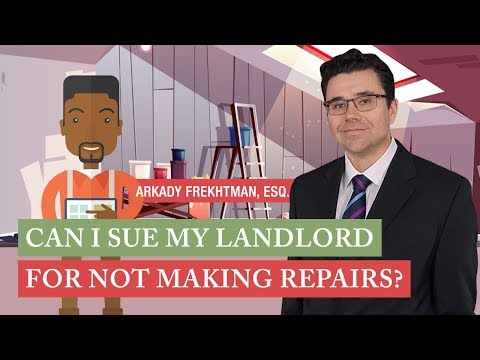
Understanding the Legal Recourse for Lack of Repairs by Landlords in the UK
Dear Reader,
Welcome to this informative article on understanding the legal recourse for lack of repairs by landlords in the UK. In this piece, we aim to provide you with a clear and detailed explanation of the rights and options available to tenants who find themselves in a situation where their landlord has failed to carry out necessary repairs.
📋 Content in this article
Before we delve into the intricacies of this topic, it is important to note that this article should not be considered legal advice. Laws and regulations can vary, and it is always recommended that you consult with a legal professional or other reputable sources for specific guidance tailored to your situation. Now, let us explore the key aspects of this issue.
When renting a property in the UK, tenants have certain rights that protect them from living in substandard conditions. One of these rights is the right to have necessary repairs carried out by their landlord. This means that if there are issues with the property that affect its habitability or safety, it is the responsibility of the landlord to address them in a timely manner.
If you find yourself in a situation where your landlord has failed to make necessary repairs, there are several steps you can take to seek legal recourse. Here are some options to consider:
Understanding Landlord Responsibilities: Timelines for Repairs in the UK
Understanding Landlord Responsibilities: Timelines for Repairs in the UK
When renting a property in the UK, it is important to understand the responsibilities of both landlords and tenants. One of the key obligations of a landlord is to ensure that necessary repairs are carried out promptly. This article aims to provide you with an understanding of the legal recourse available to tenants when landlords fail to meet their repair responsibilities.
1. The landlord’s repair obligations:
– Landlords in the UK are legally required to keep the property they rent out in a good state of repair.
– They are responsible for repairing and maintaining the structure and exterior of the property, as well as ensuring that essential utilities (such as heating, water, and gas) are in working order.
– Landlords are also responsible for repairing any appliances or furniture they provide as part of the tenancy agreement.
2. Timeline for repairs:
– The timeline for repairs depends on the nature and severity of the issue.
– Landlords should aim to address urgent repairs, such as gas leaks or electrical faults, immediately.
– For less urgent repairs, landlords should aim to carry them out within a reasonable timeframe, typically within a few weeks.
– It is important to note that tenants must provide their landlords with reasonable access to the property to carry out necessary repairs.
3. What can tenants do if repairs are not carried out?
– If a landlord fails to carry out necessary repairs within a reasonable timeframe, tenants have several options for legal recourse.
– The first step is to communicate the issue to the landlord in writing, clearly outlining the problem and requesting repairs.
– If the landlord still fails to act, tenants can contact their local authority’s environmental health department or housing standards team to request an inspection of the property.
Reporting Landlord Negligence in the UK: A Guide for Tenants
Understanding the Legal Recourse for Lack of Repairs by Landlords in the UK
As a tenant in the UK, it is important to understand your rights and legal options when it comes to dealing with a lack of repairs by your landlord. This guide aims to provide you with a comprehensive overview of the legal recourse available to tenants in such situations.
1. The Landlord’s Responsibility:
2. Reporting the Lack of Repairs:
3. Landlord’s Obligation to Respond:
4. Legal Recourse Options:
- 1. Informal Negotiation: Start by trying to resolve the issue
Understanding the Legal Recourse for Lack of Repairs by Landlords in the UK: A Professional Reflection
In the United Kingdom, tenants have legal rights when it comes to the condition of their rented properties. It is essential for both tenants and landlords to be aware of these rights and obligations to ensure a fair and harmonious landlord-tenant relationship. This reflection aims to provide a comprehensive understanding of the legal recourse available to tenants in the UK when their landlords fail to carry out necessary repairs.
It is crucial to note that laws and regulations concerning landlord-tenant relationships can vary between different regions within the UK. Therefore, it is essential for both tenants and landlords to familiarize themselves with the specific laws in their respective areas. This reflection will provide general information that may apply across the UK, but individuals should always verify and cross-reference with local authorities or legal professionals.
One of the fundamental aspects of a tenancy agreement is the implied covenant of habitability. This implies that landlords have a legal duty to maintain the rented property in a habitable condition throughout the tenancy. In other words, landlords are responsible for ensuring that the property is safe, structurally sound, and free from hazards that could affect a tenant’s health or wellbeing.
When a landlord fails to address necessary repairs, tenants have several legal options available to them. However, it is important for tenants to follow certain steps before pursuing legal action. Initially, tenants should communicate their concerns regarding repairs to their landlords in writing, providing a clear and detailed list of the issues that need attention. It is advisable to keep copies of all correspondence for future reference.
If the landlord fails to respond or adequately address the repair issues within a reasonable timeframe, tenants can seek assistance from their local authority. Local authorities have the power to enforce housing standards and can issue statutory notices requiring landlords to carry out repairs. These notices serve as a formal demand for repairs and can be effective in encouraging landlords to fulfill their obligations.
